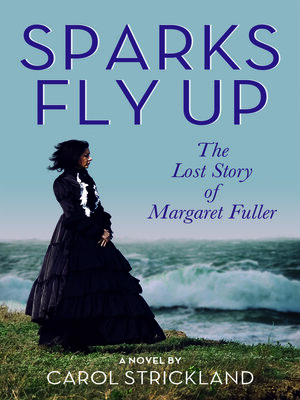
Sign up to save your library
With an OverDrive account, you can save your favorite libraries for at-a-glance information about availability. Find out more about OverDrive accounts.
Find this title in Libby, the library reading app by OverDrive.



Search for a digital library with this title
Title found at these libraries:
| Library Name | Distance |
|---|---|
| Loading... |
"How can you describe a force?" Margaret Fuller's friend Sam Ward asked after the pioneering feminist died in 1850 at age forty. Called by Henry James a "ghost" haunting American transcendentalism, Fuller comes to life in this historical novel—not as a pale specter but a passionate firebrand.
Sparks Fly Up: The Lost Story of Margaret Fuller is a character- and plot-driven story of a brilliant woman who manages to infuriate and inspire peers like Ralph Waldo Emerson, Henry David Thoreau, Nathaniel Hawthorne, Walt Whitman, and Herman Melville.
Fuller wrote the first American book on women's rights and was the first female newspaper columnist and war correspondent. She shocked New England conservatives with her revolutionary zeal, affair with a young Italian soldier, and "illegitimate" child. On the cusp of returning to the States from Italy, she died in a shipwreck. Lost with Fuller was her manuscript on the Italian struggle for freedom (the Risorgimento).
Uniting in Concord, Massachusetts, her friends squabble over how to memorialize her life. In this transformative, meticulously researched—and sure to be much discussed—view, some are proud of her ambition and others scandalized.
Strong female allies fight to preserve Fuller's legacy. A charming cad is not a fan. Thoreau must choose sides. Whitman is an aspiring poet disguised as a hack reporter, and Melville finds Fuller's story rousing. All are galvanized in a tour-de-force, cinematically thrilling, final scene. "If you have knowledge," Fuller wrote, "let others light their candles in it." Sparks Fly Up: The Lost Story of Margaret Fuller shows how her light emboldens and radiates—then and now. As the characters wrestle with the question of "me" versus "we," their ethical dilemmas are evergreen.







